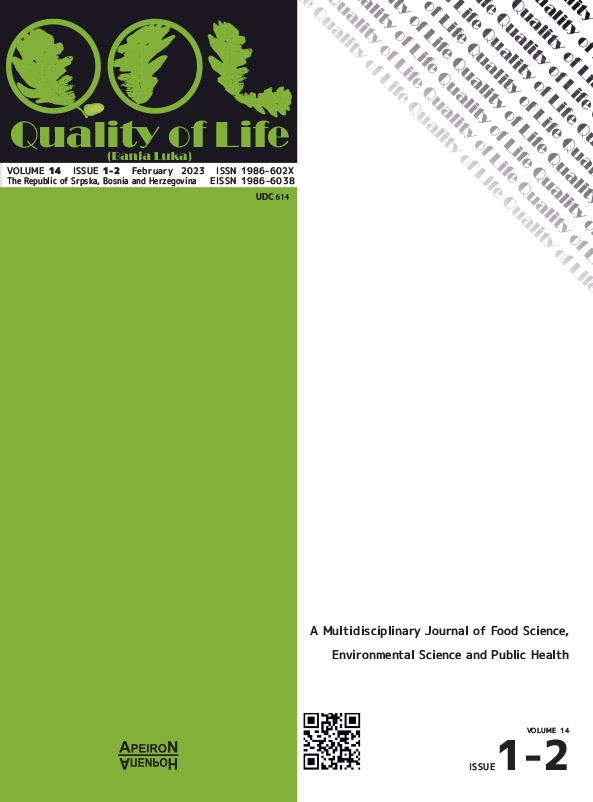Calculation of emissions into the air of non-road mobile machinery from the landfill
DOI:
https://doi.org/10.7251/QOL2301021BAbstract
Waste disposal is just one of the segments in solid municipal waste management system. During the entire life cycle of waste, starting from waste generation, through storage, collection, transport, recycling, treatment and disposal, several different pollutants are emitted. By disposing solid waste, non-road mobile machinery (NRMM) emits various pollutants into the air such as CO2, CO, NMVOC, PM, PAHs, heavy metals, etc. These substances can pose certain problems for human health and the environment. The subject of this study is the calculation of air emissions of CO2, CH4, N2O, NMVOC, PM10, CO, Cd, Cr and PAHs (chrysene and benz[a]anthracene) from NRMM which are included in the activities of receiving and disposing of waste at the Banja Luka landfill. The study evaluates the emission of pollutants using the EEA guidelines for the assessment of the emission of pollutants into the air, based on the consumption of diesel fuel during the year. This study, which is based on the calculation of NRMM emissions at the Banja Luka landfill, should serve as an example not only to other landfills but also to sectors that use NRMM on the importance of keeping track of pollutant emissions. The goal is to look at these emissions and introduce changes and improvements in this sector by replacing old NRMMs with new ones, optimizing operation, using diesel of satisfactory quality, etc.
